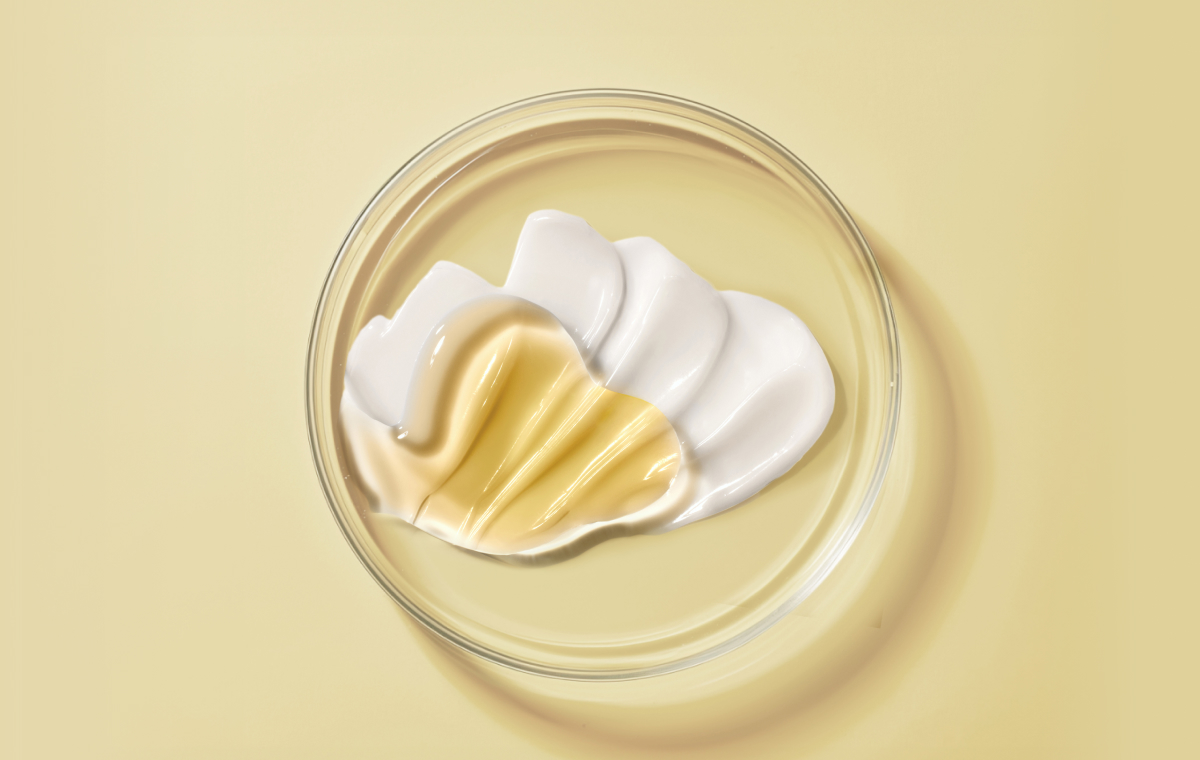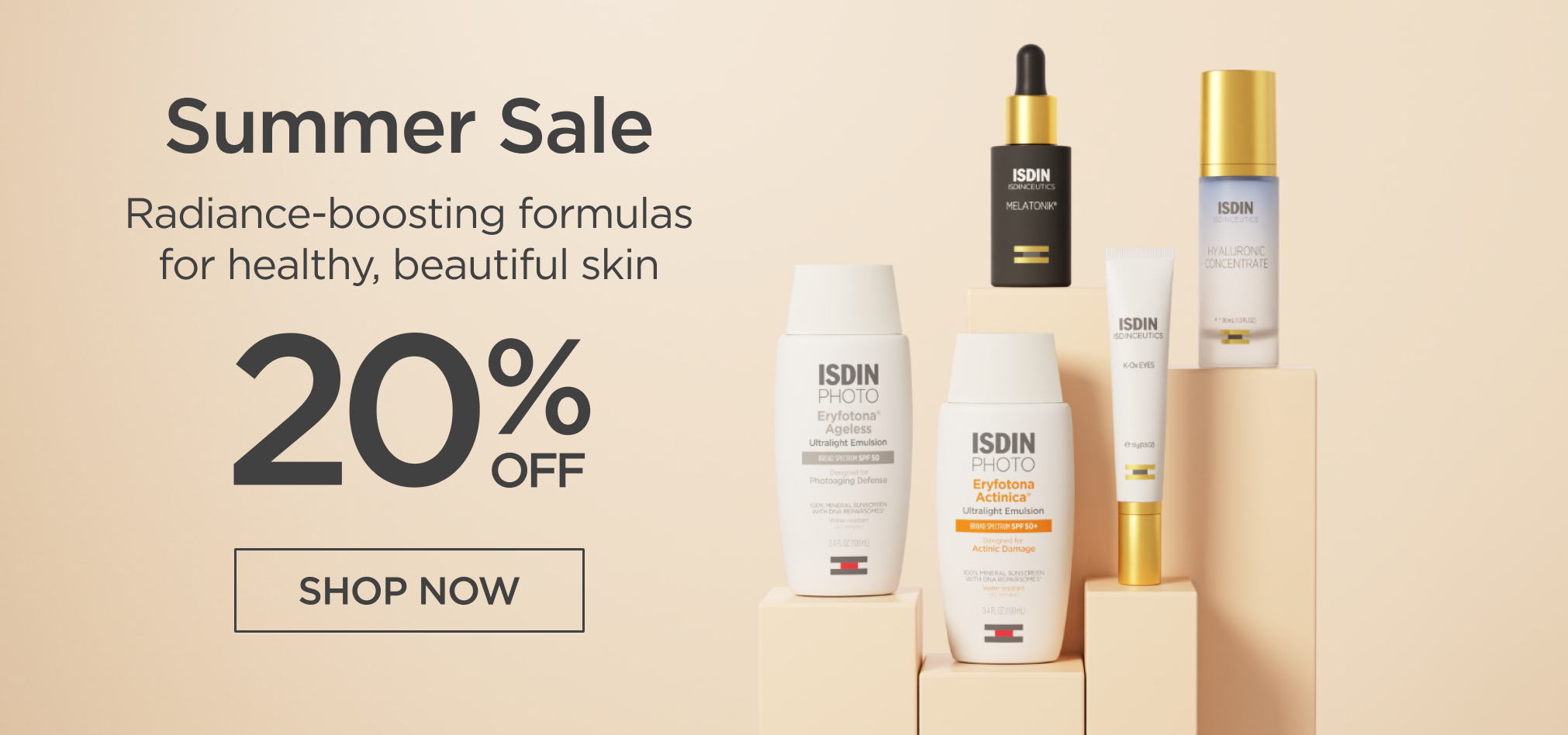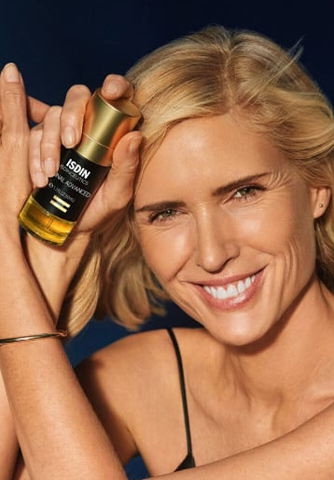While you might be familiar with retinol on your shelves and newsfeeds, retinal with an A is a favorite of skincare professionals and dermatologists. But what makes retinal different from its well-known counterpart, retinol? And is it right for your skin?
We’re joined by Martina Trabacchi, pharmacist and ISDIN Medical Communication Specialist, to unveil the facts behind its skincare benefits. Plus, discover how retinal works to fight against the visible signs of skin aging (if you’re into that kind of thing).
Let’s get started.
Table of Contents
What is retinal?
THE BASICS
RETINALDEHYDE
WHAT IT IS: Retinoid (vitamin A derivative)
WHAT IT DOES: This age-defying agent boosts skin turnover to help blur fine lines and redefine your skin's texture.
WHO IT'S FOR: Depending on the formula, retinal can be gentle enough for all skin types. But it's best to start slow and consult your dermatologist.
HOW TO USE IT: Topical retinal is ideally used in serums or moisturizers at night on clean, dry skin.
GOES WELL WITH: Hyaluronic acid, niacinamide, bakuchiol
DON’T MIX WITH: Space out your vitamin C and retinoid products (stick to C in the morning and retinal at night). When it comes to glycolic acid, consider alternating nights using the skin cycling method.
TRY IT IN: Retinal Advanced
What are the skincare benefits of retinal?
Retinal is probably best known for its wrinkle-fighting capacity. But the ability to speed up the skin’s natural renewal process makes this hero ingredient quite the multitasker.
Here’s what retinal can help with:
- Reducing the appearance of fine lines and wrinkles
- Promoting skin tightness and elasticity
- Supporting skin’s collagen levels for a firmer, plumper look
- Unifying skin tone
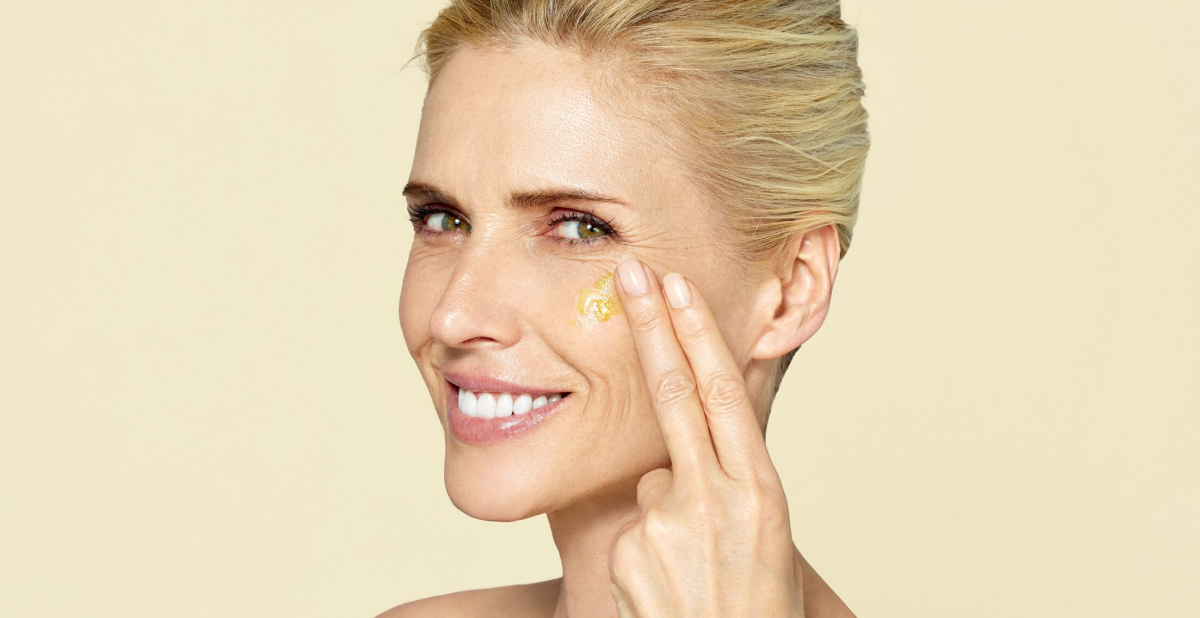
Retinal, retinol, retinoids: what’s the difference?
This is where things can get a bit confusing. Not to worry, our expert is here to break it down so you can help make the best decision for your skin.
Retinal vs. retinoids
“Retinoid is the umbrella term for a class of age-defying ingredients derived from vitamin A,” shares Martina. And vitamin A is vital to our skin’s health. But, it isn’t produced by our skin naturally — meaning we can only get it through our diet and skincare.
That’s where retinoids come in. They help support the skin’s collagen levels for smooth, even, and younger-looking skin. Retinaldehyde, also known as retinal, is a type of retinoid. As are retinol and tretinoin.

Retinal vs. retinol
They’re both retinoids. They can both be found on beauty store shelves. And our bodies have to work to convert both into retinoic acid (the active form of vitamin A that gets to work on rejuvenating your skin).
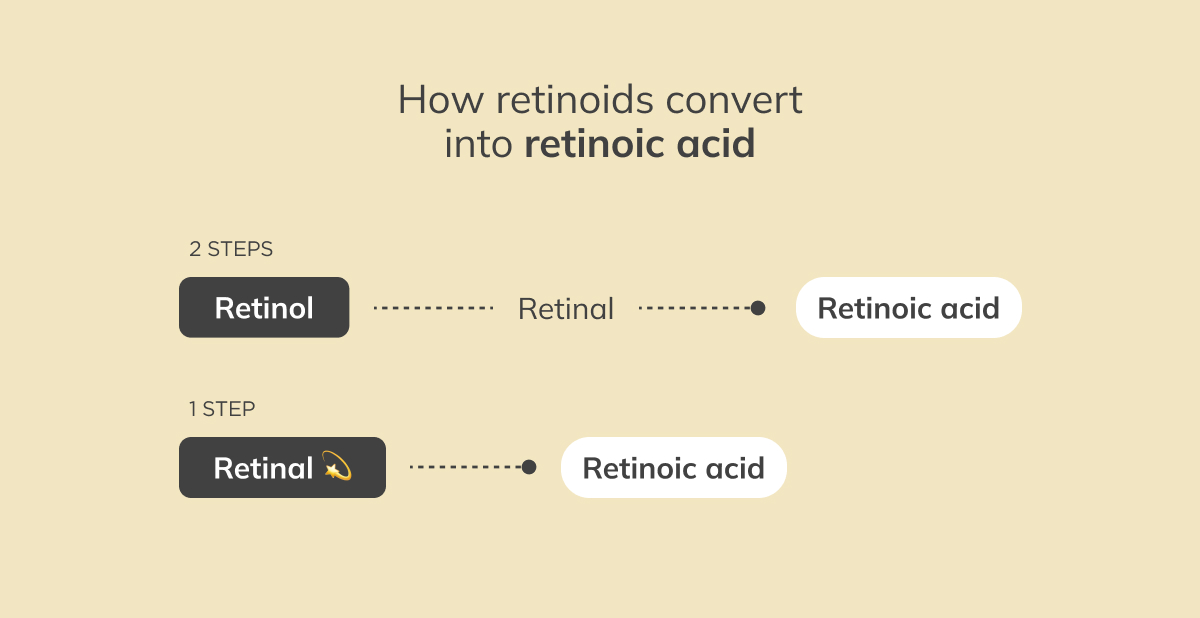
So what’s the main difference between retinal and retinol? The time it takes to get things moving. Martina confirms, “While retinol takes two steps to convert, retinal only takes one—meaning it converts into active form more quickly.”
Retinal vs. tretinoin
Remember when we said our skin needs to convert retinol and retinal into retinoic acid? Tretinoin is retinoic acid. So it can be seen as a more potent version of retinal. And it’s only available with a prescription.
So which to choose if you’re new to retinoids? “Since it’s easily accessible and quite effective, retinal may be the more beginner-friendly option while still being results-focused,” advises Martina.
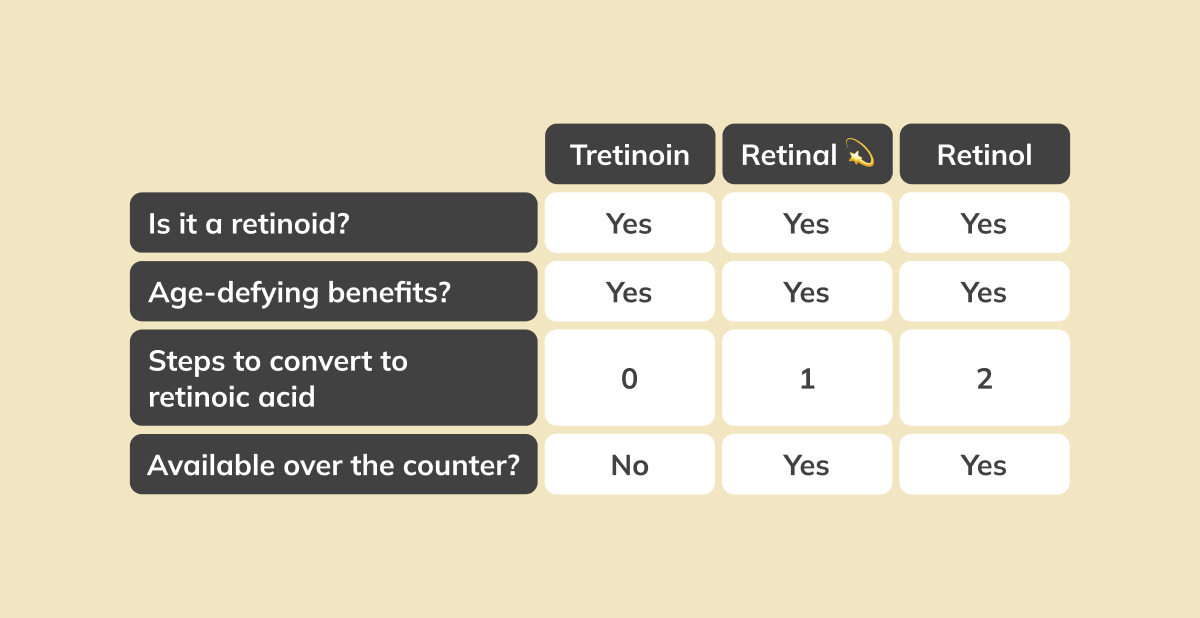
What is retinization?
If it’s your first time using a retinoid, your skin may need some time to adjust—AKA the retinization period. How come? Retinal puts your skin’s turnover into overdrive. And when your skin works hard to regenerate itself, you might see more texture come up to the surface. Sometimes this period is called purging (think flaking and light peeling).
The good news? These minor inconveniences should be temporary. “Using retinal can be a process. But the end goal is smooth, youthful-looking skin. Keep at it and you’re likely to start seeing visible results in just a few weeks,” advises Martina.

How should I get started with retinal?
Take your time and incorporate retinal little by little. Use your new formula at night, as the third step in your evening skincare routine, after cleansing and applying eye cream.
So, how often can retinal be used? Of course, it’s always best to follow the advice of your dermatologist or the application instructions on your skincare product’s label. But here’s a suggested schedule to help you get started:
- Week 1: 2-3 nights
- Week 2: 3-4 nights
- Week 3: 5-7 nights
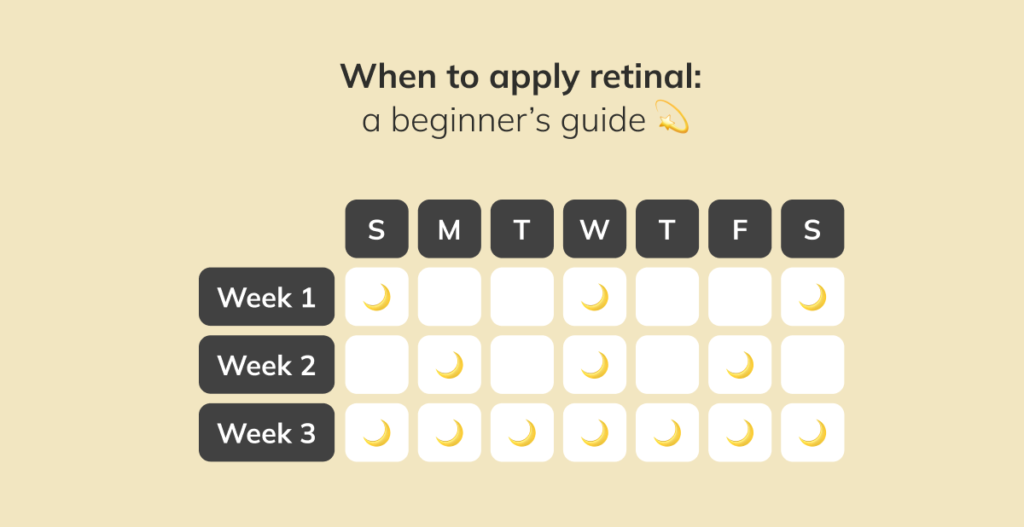
Another word of advice? Listen to your skin. “If you start to feel like it’s too much, take a breather,” says Martina. “And if you notice any discomfort (your skin shouldn’t sting or hurt), pause application and check in with your dermatologist.”
Last but not least, always, always wear high SPF, broad spectrum sunscreen during the day, especially on the mornings following retinal application. Retinoids can make your skin extra sensitive, especially when getting started.
Your retinal skincare routine, step by step
Step 1: Use a gentle oil cleanser
Reach for an oil formula to help melt away daily skin stressors. Cleansing oil binds to unwanted oils, makeup, and sunscreen to help eliminate them while adding some much-needed hydration and antioxidant support. Plus, a thorough cleanse leaves the skin ready for the rest of your products to get to work.
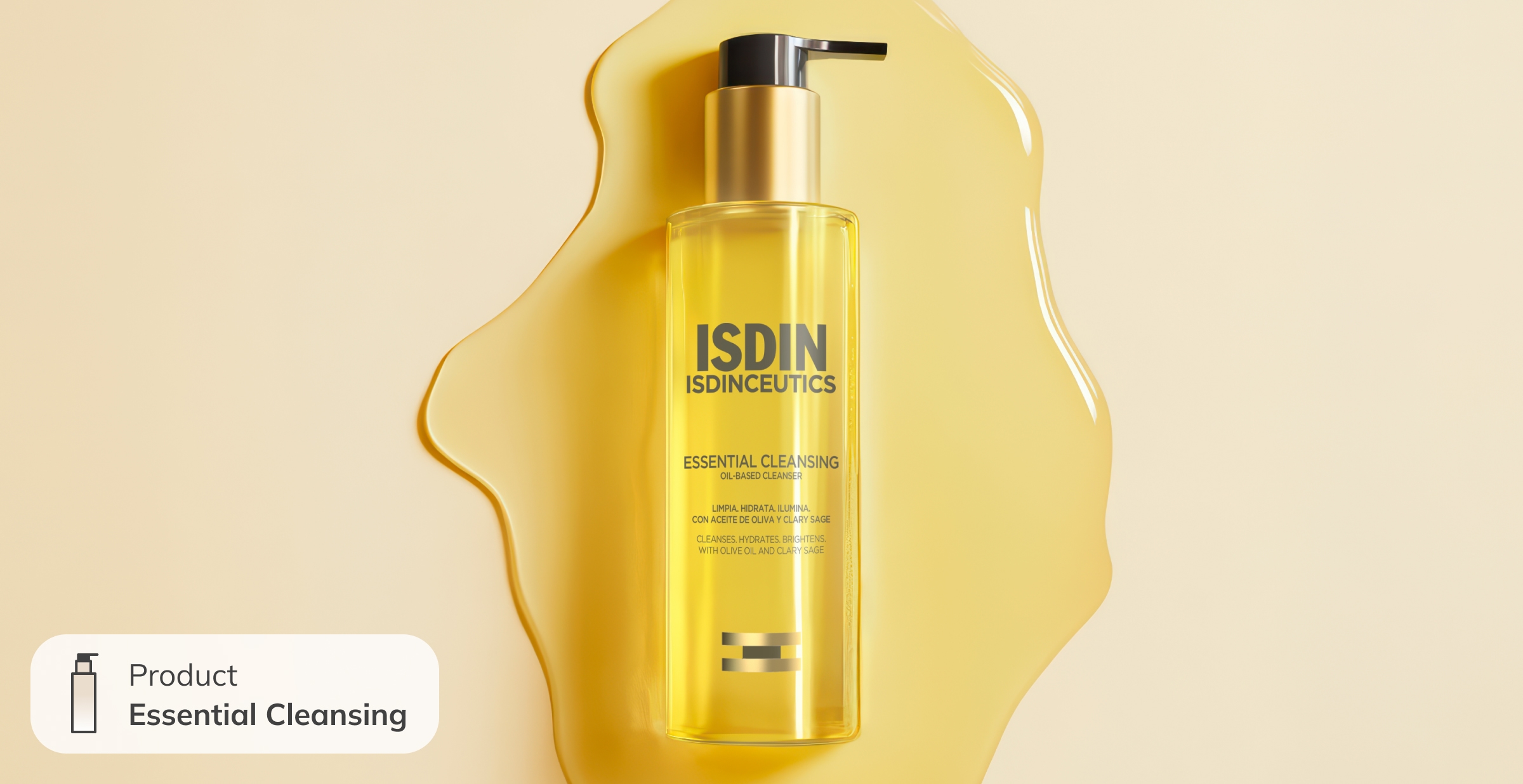
Step 2: Apply a revitalizing eye contour cream
The skin around the eyes is the thinnest on the face. So it can be one of the first to show the signs of skin aging. Opt for an eye cream containing reparative melatonin and energizing caffeine. These super-ingredients help boost the skin’s antioxidant defenses while you enjoy your beauty sleep.
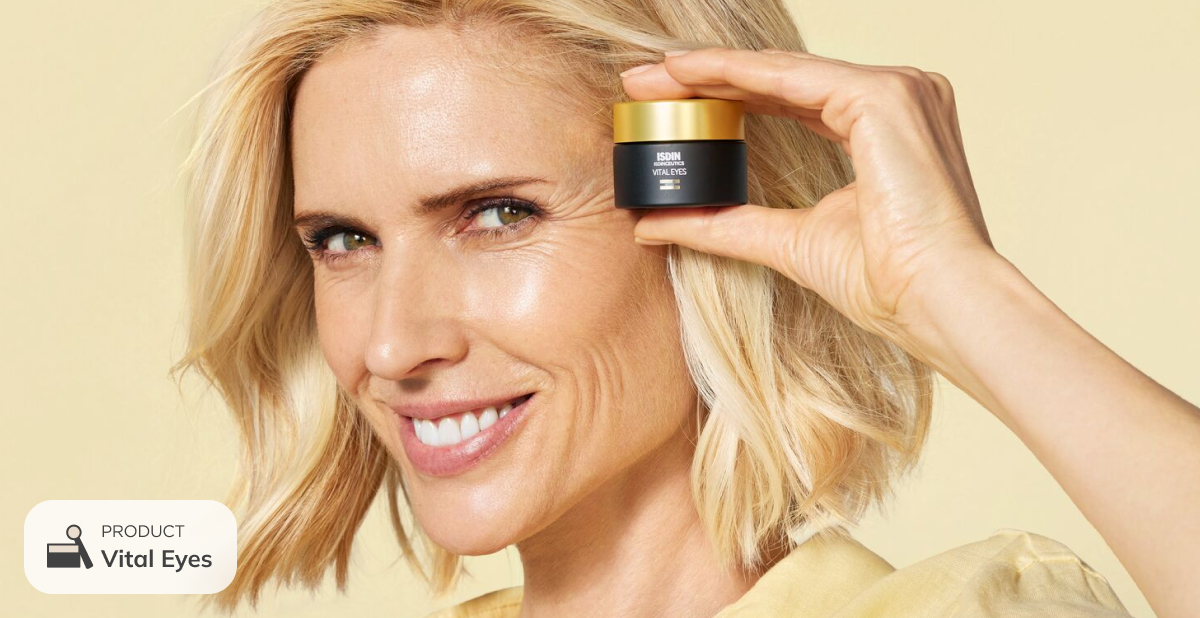
Step 3: Turn to a powerful retinal serum
A retinaldehyde serum can help minimize the look of wrinkles and fine lines for smoother, more even, younger-looking skin. Look for a formula featuring soothing ingredients such as niacinamide to help calm while working to renew.
Reach for Retinal Advanced and make way for dreamy skin. Named Best Retinoid Serum by Harper’s BAZAAR, this formula can provide results in as soon as four weeks thanks to its innovative formula. “Retinal Advanced night serum combines the power of retinaldehyde, bakuchiol (a plant-derived retinol alternative), antioxidant melatonin, and soothing niacinamide to transform skin’s texture,” shares the renowned publication.
“Retinal Advanced night serum combines the power of retinaldehyde, bakuchiol (a plant-derived retinol alternative), antioxidant melatonin, and soothing niacinamide to transform skin’s texture.”
Harper’s BAZAAR Skincare Awards
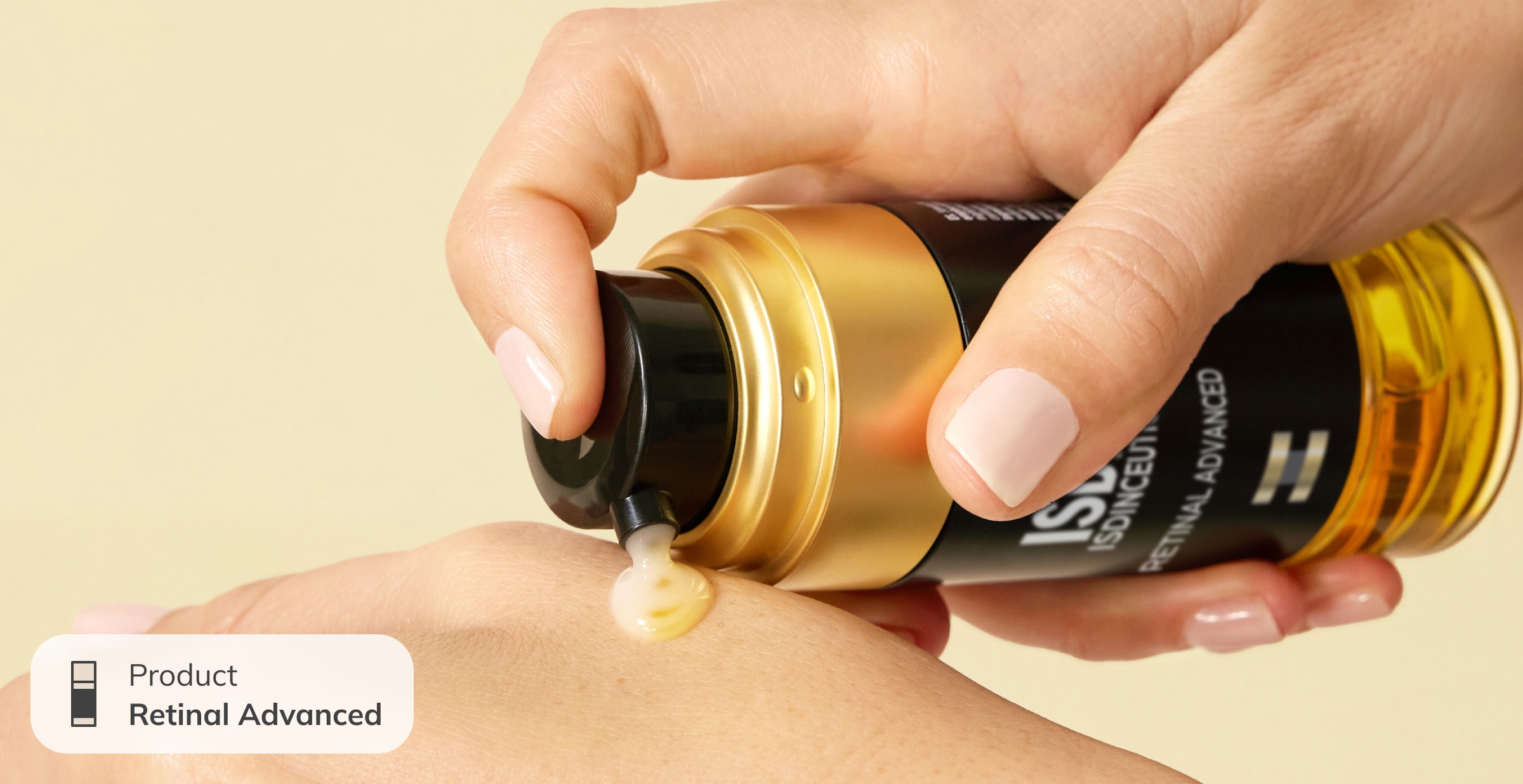
Step 4: Reach for a rejuvenating night cream
After applying your retinal serum, it is time to “seal in” the action with a moisturizer that works to nourish, calm, and firm the skin. Even better if your night cream formula is rich in antioxidants and amino acids such as carnosine. Carnosine works to fight glycation, a natural process that causes the skin to lose its firmness as we age.
The next day: sunscreen!
Every day, every season—the final step of your morning skincare routine should always be high SPF, broad spectrum sunscreen. And remember to reapply at least every two hours throughout the day. This is even more important when using retinal as it can make your skin more sensitive.
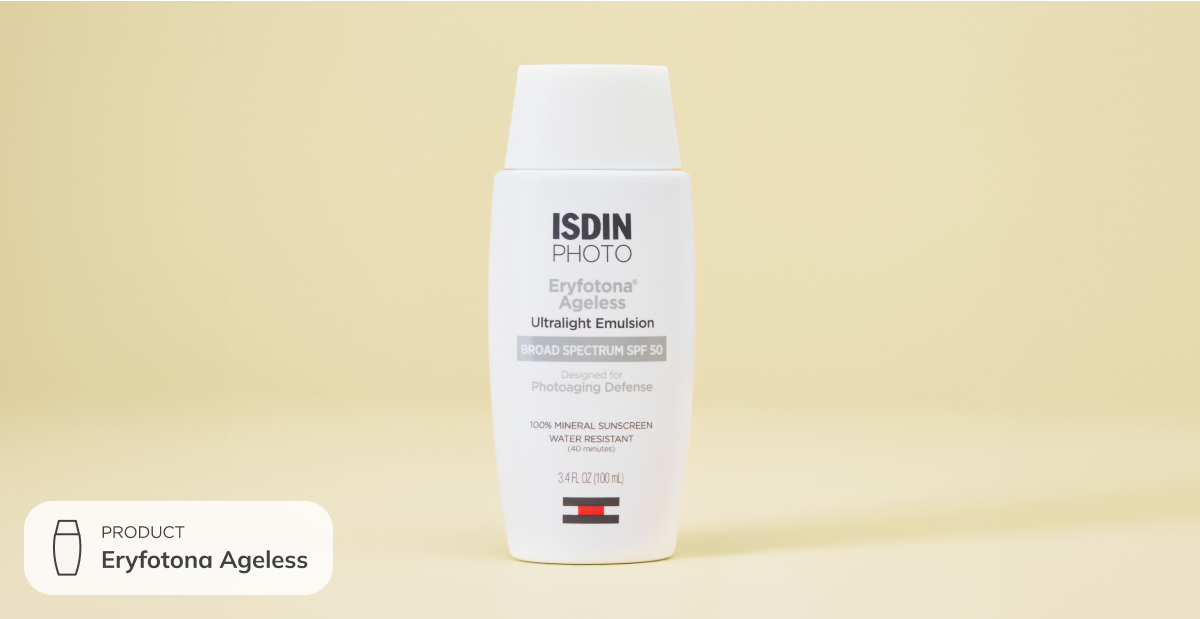
Your most frequent retinal questions answered
Is it good to use retinal every day?
With the go-ahead from your dermatologist, a retinal formula for all skin types, and a good sunscreen, you’re on the right track. That said, make sure to start slow and look for premium retinal skincare products that include skin-soothing ingredients to help minimize any unwanted effects.
But sometimes, too much of a good thing can lead to a not-so-desirable reaction. If you overuse retinal you may experience some burning and peeling sensations past the normal retinization process. The good news is that this should go away once you give your skin a break from retinal.
What happens when retinoids are exposed to the sun?
Retinal itself is sun-sensitive. This means if you leave your retinal products in the sunlight or use them in your morning routine, they might be less effective.
But this fact has also led to some confusion, such as: can you go in the sun if you use retinal? Here it’s best to err on the side of caution. While retinal doesn’t make your skin more sensitive to the sun itself, it can make your skin more sensitive overall. So it’s extra important to use sun protection correctly.
What’s more effective for wrinkles: hyaluronic acid or retinal?
Hyaluronic acid and retinal are both great options for keeping skin looking smooth, plump, and healthy. But they each have specific qualities for different skin concerns. If you’re looking for a powerful ingredient to help fight against the look of wrinkles and uneven skin tone, retinal may be the better option. Meanwhile, hyaluronic acid is ideal for those concerned with dry skin.
Make way for dreamy skin
When it comes to unveiling visibly smoother, more radiant skin, retinal—with an A—stands out as a powerful yet approachable retinoid. With its fast-acting benefits and dermatologist-beloved results, it’s no surprise this potent ingredient is in the spotlight.
Whether you’re just starting out or looking to upgrade your routine, a retinal formula can help support your skin’s natural renewal process night after night. Just remember: start slow, stay consistent, don’t skip the sunscreen, and love your skin exactly the way it is today—and tomorrow.
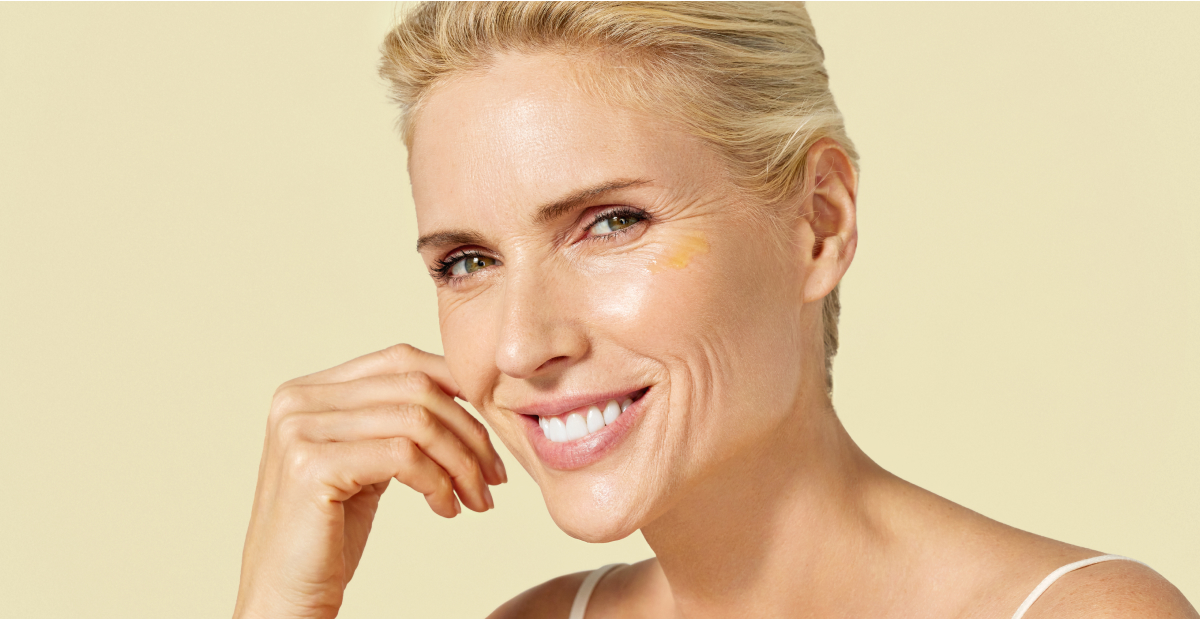
You might also like:
Sources and references:
VanBuren CA, Everts HB. Vitamin A in Skin and Hair: An Update. Nutrients. 2022 Jul 19;14(14):2952. doi: 10.3390/nu14142952. PMID: 35889909; PMCID: PMC9324272.
Draelos ZD, Ertel KD, Berge CA. Facilitating facial retinization through barrier improvement. Cutis. 2006 Oct;78(4):275-81. PMID: 17121065.
Kligman, D., Sadiq, I., Pagnoni, A., Stoudemayer, T., & Kligman, A. M. (1998). High-strength tretinoin: a method for rapid retinization of facial skin. Journal of the American Academy of Dermatology, 39(2), S93–S97. https://doi.org/10.1016/s0190-9622(98)70454-2

